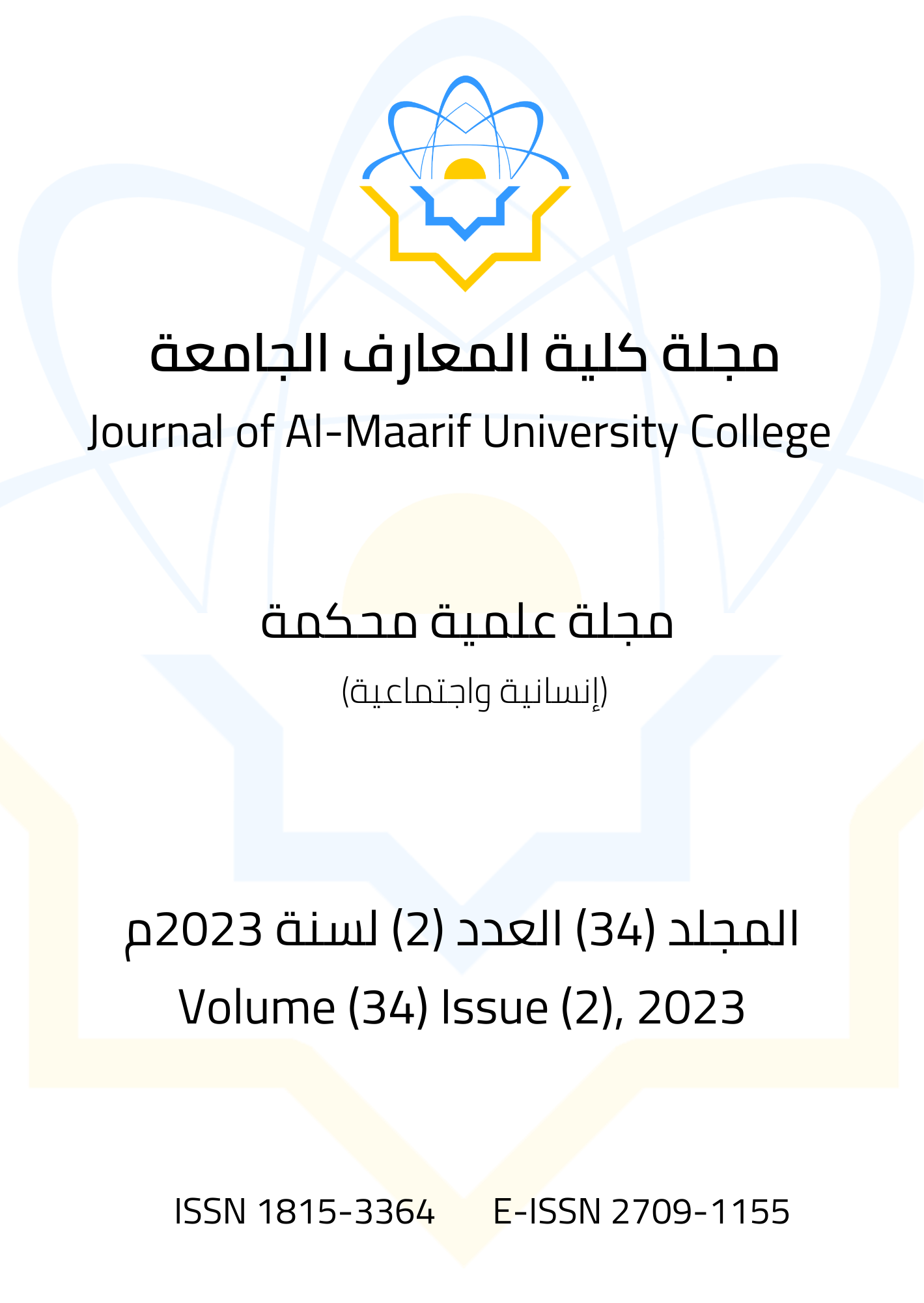Issue Introduction
Main Article Content
Abstract
Issue introduction
By:
Assoc. Prof. Dr. Mohammed Abdulhakim Alsaadi
Editor in Chief
Praise be to God, who raised the people of knowledge among the creation and honored them, revealed to them the truths of the universe, taught them, adorned their souls with morals, and educated them. May God Almighty’s blessings be upon the Prophet Muhammad, to whom truths and knowledge were collected and the world adorned with his law, just as the heavens were adorned with planets and stars. His family and companions.
The judgment of morals between creation is the goal of laws and human nature before the contamination of nature and the scale of justice that is free from desires and ambitions. Ethics in upright thought and upright understanding are a foundation upon which rational people do not disagree, except those who follow their desires and are led by foolish materialistic ideas. Based on this understanding and based on that realization, ethics has become one of the controls of the law that governs human activities in various fields, the most important of which is the field of science, learning, education, research and scientific publishing. Those in charge of research and scientific institutions set out to set standards and codify regulations and constitutions. The desired goal of the efforts exerted in this field is to preserve the material and moral rights of intellectual work and scientific creativity and to prevent forgery, deception, theft, and false claims those who commit the described unethical deeds seek to obtain what they do not deserve from the consequences of intellectual and scientific achievement. Leaving the rope unchecked for practices that contradict the rules, directives, controls, and standards of research and publishing ethics leads to the collapse of the scientific and academic organization and a decline in scientific, technical, and intellectual development.
This issue, as usual for our Journal, was diverse in its content. There is language, literature, and poetry. There are linguistics and studies specialized in dialects. There is research dealing with politics and administrative law. There is something covering financial policies and finance management technology. For those interested in geographical and agricultural studies, you will find distinctive content. Finally, it was for literary studies in the English language, so we counted this part and others.
The Journal will not stop trying to develop the level of scientific, literary, artistic, and technical research to be presented to the academic community locally, regionally, and internationally. Efforts will not stop to make the standards of scientific ethics always effective so that the credibility of the Iraqi and Arab researchers remains free from any blemish or suspicion.
Article Details

This work is licensed under a Creative Commons Attribution-NonCommercial-ShareAlike 4.0 International License.

